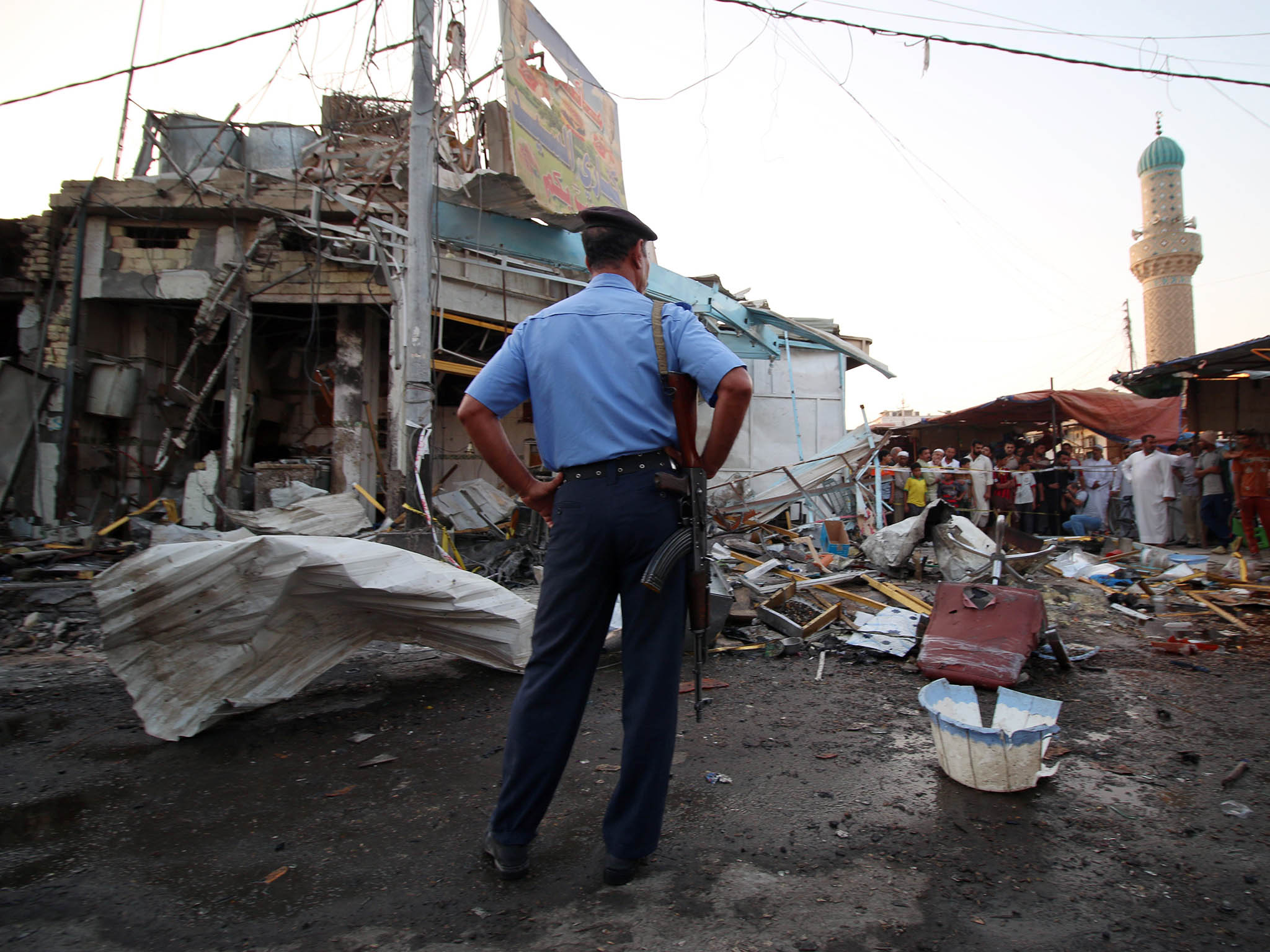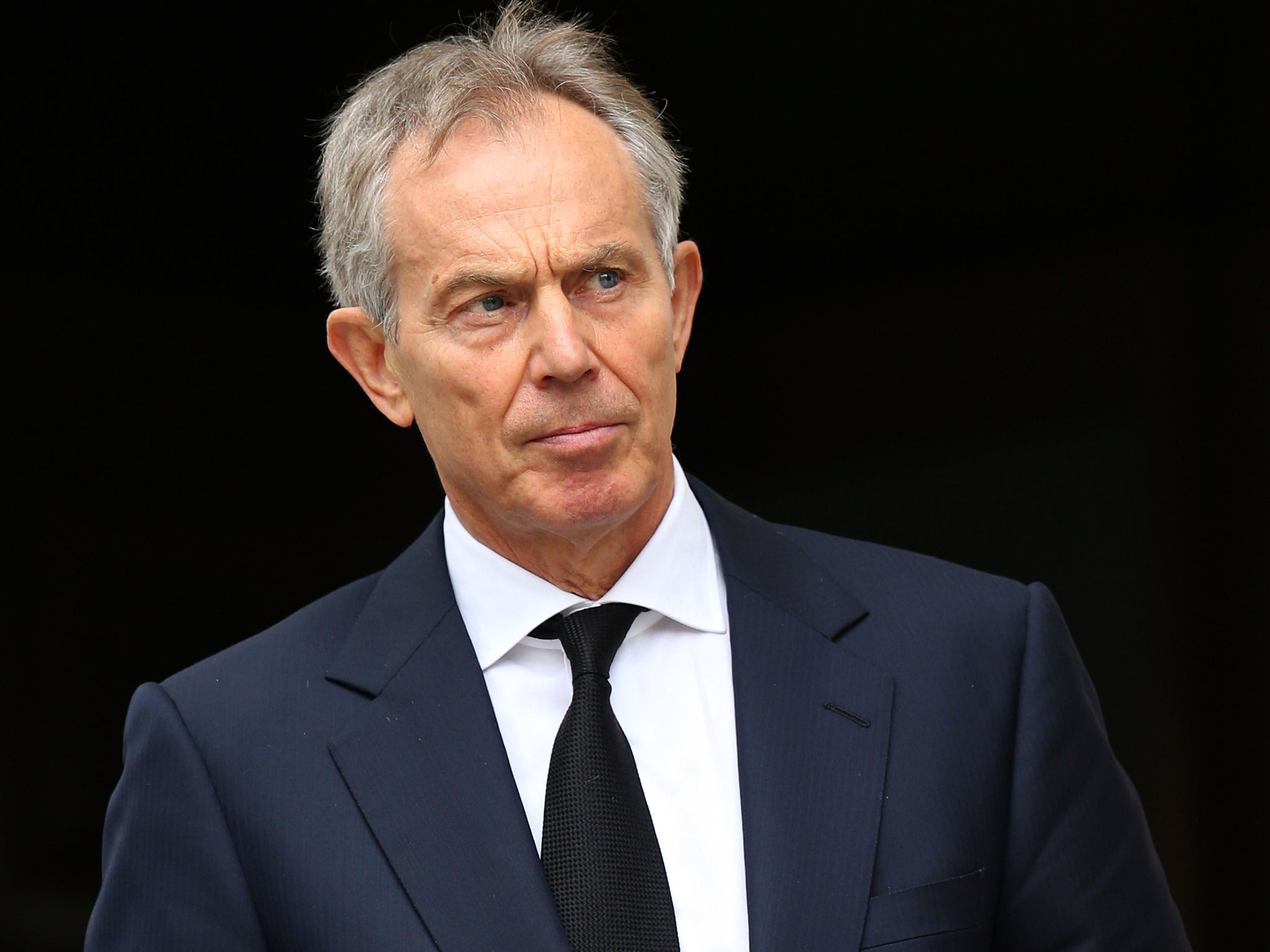Tony Blair apologises for Iraq War: The former PM's mind has been paralysed by what happened in 2003
Blair has an arrogant inability to admit he was mistaken


Your support helps us to tell the story
From reproductive rights to climate change to Big Tech, The Independent is on the ground when the story is developing. Whether it's investigating the financials of Elon Musk's pro-Trump PAC or producing our latest documentary, 'The A Word', which shines a light on the American women fighting for reproductive rights, we know how important it is to parse out the facts from the messaging.
At such a critical moment in US history, we need reporters on the ground. Your donation allows us to keep sending journalists to speak to both sides of the story.
The Independent is trusted by Americans across the entire political spectrum. And unlike many other quality news outlets, we choose not to lock Americans out of our reporting and analysis with paywalls. We believe quality journalism should be available to everyone, paid for by those who can afford it.
Your support makes all the difference.What is striking about Tony Blair’s latest comments about his role in the Iraq War is how little he had learnt about the country in the 12 years since the invasion. It could be added, however, that his accusers have not learned much either.
He conflates two events that should be looked at separately. He says that he does not apologise for removing Saddam Hussein: one could argue that most Iraqis wanted this to bring an end to Saddam’s disastrous rule at that time. But the US and Britain then went on to occupy Iraq and it was the war against the occupation, waged separately by Sunni and Shia, that destroyed the country and enabled al-Qaeda to gain its first foothold there.

It is difficult to understand Mr Blair’s position, because here is an intelligent man whose mind seems to have been paralysed by his experiences in 2003. His comments on Iraq and other events in the Middle East since that date are consistently ill-informed and partisan.
This is in sharp contrast to his understanding of the problems of Northern Ireland about which he writes knowledgeably and lucidly in his autobiography. It is as if Iraq turned his political strengths to weaknesses: his self-confidence turned into rigidity and an arrogant inability to admit he was mistaken and to avoid such mistakes in future.
It was evident from the first days of the invasion that President Bush and Mr Blair might get away with the invasion, but if they tried to stay in the country they would be in trouble. The reason they did so had nothing to do with the greater good of the Iraqi people, but because they did not want Iran, the greatest Shia power, to benefit from the fall of Saddam Hussein. But this was always going to happen because any election in Iraq would bring to power the Shia who made up 60 per cent of the population.
Iraqis say that sanctions destroyed Iraqi society and the invasion destroyed the Iraqi state. There have been claims since that if there had been a post-invasion plan in Iraq then all would have been well, but this is patronising nonsense. The only Iraqis who welcomed the occupation were the Kurds, who were not occupied. Moreover, all the states neighbouring Iraq, including Iran, Saudi Arabia, Syria and Turkey, did not want the occupation to succeed. Any insurgency inside Iraq was always going to receive arms and money from outside.
The state in Iraq that the US and Britain claimed to be rebuilding was delegitimised from the beginning in the eyes of Iraqis because it was so openly a foreign creation. The same was true in Afghanistan where the great strength of the Taliban was the contempt and hatred felt by so many Afghans for the government in Kabul. British forces were sent to Helmand in 2006 with same lack of understanding of the dangers, just as they had been sent to Basra in 2003, and with the same disastrous results. Actions that were supposed to show the US how effective Britain was as an ally achieved exactly the opposite result.
There is a danger that an obsessive interest in Britain in attributing blame for what happened in Iraq in 2003 is pursued with the narrow purpose of demonising Mr Blair and ignoring the broader context of what happened then and is happening now. It is not just that he made mistakes then, but he went on making them. In his evidence to the Chilcot Inquiry some five years ago, he was lauding the successes of the Iraqi government of the day, though everybody in Iraq knew it was dysfunctional, kleptocratic and sectarian.
Join our commenting forum
Join thought-provoking conversations, follow other Independent readers and see their replies
0Comments